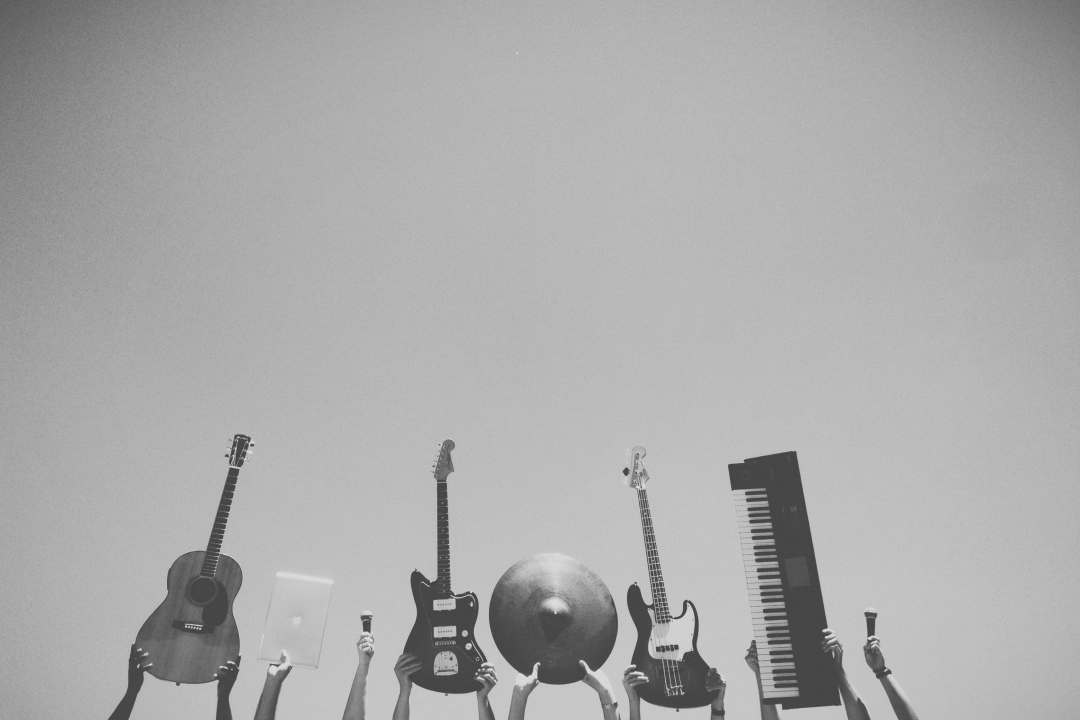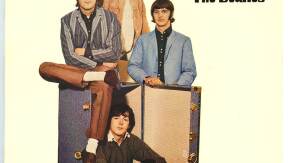School’s back in session, your sunburns have lamentably healed into an unsightly peel, summer barbecues weigh on your belt and you’re back at work somehow even more tired than when you left. The good news? Along with getting back into the swing of things can come healthy resolutions, boosted by some hefty self-motivation. Among the resolutions, you’ve chosen to take up music. Excellent news! But..... which one to choose?
To try is to adopt
Driven by a major urge to pick up an instrument, we don’t always have the slightest clue of where to begin and which instrument to adopt. In this case, your first step should be a trip to the music store. Often, the most common of instruments are available to test, so you’re free to try them out, touch and play them, as long as you are handling with care. A quick piece of advice: don’t get turned off from an instrument when you see another customer passionately playing Pachelbel's Canon to impress the public (keep in mind that even he had to start off somewhere!).
Once you’ve chosen an instrument family, for example the keyboard, it remains to determine if you opt for the father piano, the mother harmonium, the cousin synthesizer, etc. Same thing for guitars and affiliates, the possibilities are wide, from the electric guitar to the classical, onto electro-acoustics, .... The forms also vary, from the hollow body to the solid body ... If you like the exotic, maybe go for the banjo, the ukulele, or the dulcimer?
A quick, non-exhaustive list of what’s open to you:
- String instruments: Violin, viola, cello, double bass, harp, guitar, bass, harpsichord, piano, etc.
- Wind instruments: Flutes, oboe, English horn, bassoon, contrabassoon, clarinet, saxophone, trumpet, trombone, French horn, tuba, organ, etc.
- Percussions: Drums, timpani, bongos, maracas, xylophones, claves, triangles, etc.
Several criteria come into play
Space and soundproofing
Think about the space your instrument will need and make sure it does not encroach on your living quarters, that of your relatives, that of your neighbors, or even of your city. If you live in a teeny-tiny studio, the drums aren’t such a good idea and especially if the walls are thin. Certain alternatives and solutions are available to you however: the choice of a minimalist drum kit, an electronic drum (compact or not), silencing tips for your drumsticks, a set of mutes, etc.
Budget
From a triangle at six dollars to a grand piano at $30,000, or even within the same instrument family, like the cost of a beginner's guitar such as the Harley Benton and a Gibson Les Paul Deluxe 1972, cost can vary even more. Fix yourself a budget that’s not to be exceeded and that will include everything you need….
Accessories
Ah yes, this new love in your life will sometimes require accessories, indispensable or not. Take this into account when purchasing at the risk of exceeding your allocated budget. A digital piano without a pedal, stool, support, etc., is much less of an instrument. A bass or electric guitar is good, but an amp and a cable, those shouldn’t even be considered accessories, rather necessities. Is this enough to make you opt for an acoustic?
Also consider all scenarios: perhaps your lifestyle requires you to be on the go with your instrument. In this case, a flexible gig bag is the least you'll need for your instrument (the ideal being a flight case) but this could dip into your savings again…
And here, we’re really only talking about the bare minimum, you’ll discover that little by little a plethora of products, from tuners to effects pedals, metronomes, tuning keys, audio protection, cleaning products,.... You get the idea!
Ease of learning
This shouldn’t be the main criteria for choosing an instrument. If you’ve committed yourself to learning an instrument, selecting one that is the least painful to learn is not the best measure. If it is, you might as well buy a rain stick or a vuvuzela. With practice, you’ll come to realize and even appreciate playing your instrument. Why? Because from learning and effort comes pleasure of accomplishment and mastery, young Padawan.
Physical abilities
Certainly, long and strong fingers could simplify your life as a bassist, just as good back muscles will for a drummer. Your height of 4’10” could pose problems should you choose the tuba. But all of this means nothing in the face of desire and adaptability.
Otherwise, taking into account some extreme examples, Def Leppard's drummer would not have continued to play with one arm or the after-effects of severe burns to Django Reinhardt's left hand would have prevented him from become a master of gypsy jazz.
It's my objective!
Asking yourself what your objective is in learning an instrument can help you relativize your choice. Would you like to play for pleasure? To play in a group? To play at concerts? To satiate your childhood dream? To share a passion with your kids?
Feeling
When you go to see concerts, watch videos, listen to music, which instrument are you drawn to? When you mime an instrument unconsciously, taken away by the sweet, sweet melodies, which is it? Above all, what does your gut tell you? Which instrument gives you goosebumps, an irrepressible desire to dance, the need for noise? What you're feeling will likely be the effect you have when picking up your instrument and the intensity with which you will play.
Choosing anything isn't bad
Don't forget that choosing an instrument only commits you to life if you fall in love with your instrument (and that's arguably one of the best things that could happen to you). Otherwise, don't be afraid to change, vary it up, master other instruments as what is learned from each one will most certainly serve you thereafter.



